GP News – Dec ’16
Contents
- Vaccine availability and dosing recommendations
- Measles Alert: Outbreak risk
- Update from Northern Beaches Mobile X-Ray Service
- Manly Waters Private Hospital open over Christmas and New Year
- Supporting your patients with incontinence
- WiSE Emergency Clinic to open in Macquarie Park in January 2017
- Patients gain subsidised access to expensive new medicines
- Blue Book survey from NSW Health
- PFAS resources from the Department of Health
- Expressions of interest – INTEGRATE Study by The George Institute

Vaccine availability and dosing recommendations Bexsero dosing
Bexsero dosing
The Australian Immunisation Handbook has been updated to include Meningococcal B vaccination and recommendations (see below table). When referring to this table you need to be mindful that there is sometimes a booster dose required when vaccination was commenced prior to 12 months of age. This booster is additional to the primary course and is determined by the age at commencement of the vaccine course. For example, if you gave an 11-month-old a Bexsero vaccine, they would need to have 2 primary doses AND a booster dose, 8 weeks apart.
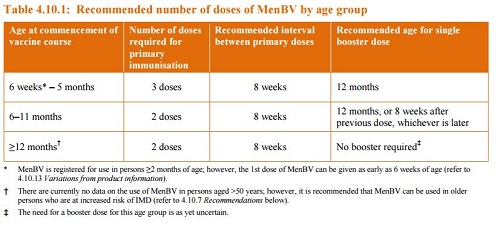
Adult Hepatitis B vaccine shortage
GSK has recently made a communication to the private market regarding a supply constraint impacting private market availability of Engerix-B® adult vaccine. Please note that Engerix-B paediatric dose is still available.
GSK are prioritising hepatitis B vaccine availability for those most at risk of the disease and can confirm uninterrupted supply of Engerix-B for all Government vaccination programs where Engerix-B is the vaccine of choice.
Zostavax vaccine shortage
There is a nationwide shortage of Zostavax vaccine and as such supplies of the vaccine remain restricted. NSW is working closely with the Commonwealth and all other States and Territories to obtain more stock of Zostavax, however this may take some time and is looking likely to last into the New Year. We will advise as soon as we have more information.
Christmas Deliveries
Practices need to ensure that their orders are in by Tuesday 20th December at 4pm for delivery before Christmas. Routine deliveries will not recommence until the 3rd of January.
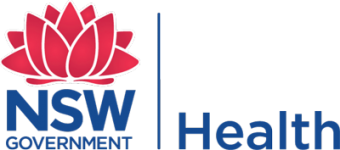
Measles Alert: Outbreak risk
Information for NSW General Practitioners
- Three cases of measles have been detected in Sydney in the last two weeks.
- More cases are likely in the coming weeks.
- Isolate suspected cases and call the public health unit if you suspect measles
Measles in NSW
- Three cases of measles have been reported in Sydney since early December.
- Whilst infectious the cases spent considerable time in the Sydney metropolitan area.
- Infants who are too young to be vaccinated (<12 months), children, and adults who have not received two doses of measles containing vaccine are at risk of infection.
- Be alert to travellers who may have been exposed in youth hostels – this population is likely highly mobile.
- Suspect measles in people with fever and rash irrespective of travel history
How does measles present?
- Two to four days of prodromal illness with fever, cough, coryza, and conjunctivitis.
- A maculo-papular rash then typically begins on the face and neck and becomes generalised.
- Measles cases are infectious from the day before the prodrome illness to 4 days after the onset of rash.
CLICK HERE for the full Measles Alert from NSW Health.
For further information:
- Contact your local public health unit on 1300 066 055
- NSW Measles factsheet: http://www.health.nsw.gov.au/Infectious/factsheets/Factsheets/measles.pdf
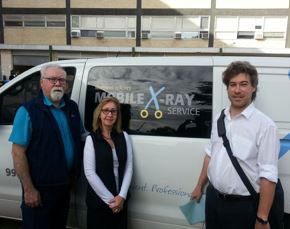
Update from Northern Beaches Mobile X-Ray Service
The Aged Care Mobile X-Ray service from Mona Vale Hospital will be closed from 26-27 December and Monday 2 January. It will be open on all other weekdays.
The Mobile X-Ray Service would like to thank you for your support this year.

Manly Waters Private Hospital open over Christmas and New Year
Admissions
Rehabilitation, medical and palliative patients may be admitted under the care of their GP, if accredited to Manly Waters Private Hospital, or one of our frequent user GPs. The patient’s regular GP will be informed of the patients discharge and outcome.
The door is always open to discuss our services for Palliative Care patients
We address physical, emotional, spiritual and social concerns that arise with advanced illness. This Team may include: GPs, Palliative Care Specialists, Physicians, Nurses and Social Workers, Other Allied Health Professionals, Chaplains and Psychologists.
Rehabilitation Programmes on offer for both inpatients and outpatients include:
- Orthopaedic
- Cardiac
- Neurological (specialise in Parkinson’s disease)
- Reconditioning
- Sports injuries plus post and pre-operative programs.
CLICK HERE for more information.
CLICK HERE for information on Manly Waters Private Hospital’s Day Rehabilitation Programs.

Supporting your patients with incontinence
If you have a patient with incontinence you can apply for funding so they can access some financial support to purchase continence aids. CLICK HERE for information on the Continence Aids Payment scheme.
The following form must be completed by a health professional and submitted to the Department:
http://www.bladderbowel.gov.au/assets/doc/caps/CAPSApplicationForm.pdf
If you are not sure which continence aids would suit your patient, you can request free samples via the below websites:
- https://www.independenceaustralia.com/shop/try-before-you-buy
- https://www.tena.com.au/health-professionals/
- https://www.depend.com.au/free-sample/
For further information, please contact the Continence Foundation of Australia on 1300 33 00 66 or head to their website.
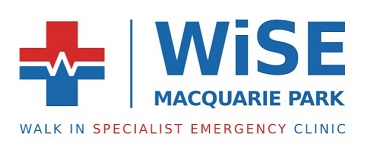
WiSE Emergency Clinic to open in Macquarie Park in January 2017
WiSE was formed by a group of specialist emergency doctors and healthcare managers to deliver acute and urgent care outside of the hospital environment. In NSW 70% of hospital emergency department presentations are not admitted. Patients with acute illnesses, who require urgent care or specialist consultation, have no option between their general practitioner and a hospital-based emergency department.
The WiSE Emergency Clinic has been established to provide our community with greater choice in how they access urgent medical treatment. WiSE provides coordinated, onsite acute care, from the initial consultation and diagnostic service, to treatment and specialist follow up care where needed. Our stand-alone facility has onsite CT, Ultrasound, Xray, OPG and a stat pathology lab.
The clinic is opening on 15 January 2017 and will be open 7 days a week, 10am – 10pm.
CLICK HERE for the WiSE clinic brochure.

Patients gain subsidised access to expensive new medicines
Australians from 1 December will pay no more than $38.30 for a medicine to treat thyroid cancer that would cost a patient $117,000 without subsidised access through the Pharmaceutical Benefits Scheme (PBS).
The medicine – Lenvatinib (Lenvima®) – is used in the treatment of radioactive iodine refractory differentiated thyroid cancer (RAI-R DTC) and works by blocking certain proteins that would otherwise encourage cancer cell growth.
The Minister for Health and Aged Care: “The Pharmaceutical Benefits Advisory Committee agreed that there was a clinical need for an effective treatment for symptomatic, rapidly progressing patients with RAI-R DTC.
“This listing will help reduce stress for people at a very difficult time in their lives. Around 140 patients annually will benefit from the listing, and without Government subsidy, these patients could pay more than $117,000 for one year of treatment.”
Most patients with thyroid cancer respond well to treatment with radioactive iodine. However, there are currently no subsidised treatment options for those patients who do not respond to this therapy.
Ms Ley said: “These patients generally only live for 2.5 to 3 years after diagnosis. Lenvatinib has been shown to significantly delay the progression of these cancers and it is the only PBS subsidised treatment option available to these patients.
“The addition of this cancer medicine to the PBS, at a cost of approximately $71 million over five years, is part of the Australian Government’s undertaking to make new and affordable treatments available for people when they are very sick and in need of affordable access to medicine.”
Concessional patients pay $6.20 per script and the general PBS co-payment is $38.30 for access to PBS medicines.
CLICK HERE to read full Department of Health media release.
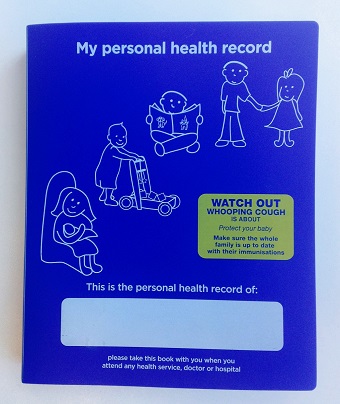
Blue Book survey from NSW Health
The Blue Book has been used by parents and carers to record children’s health and development for over 28 years.
A major review of the NSW Child Personal Health Record, or the Blue Book, is currently underway. The Blue Book is an early childhood document intended to be a key resource for parents, carers and health professionals.
The input from various health professionals, parents and carers is sought as part of this review process.
The survey is closing on 23 December 2016.
CLICK HERE for the online survey.
ENQUIRIES: Please contact Sharnee Townsend, Policy Analyst Child and Family Health, NSW Ministry of Health on shtow@doh.health.nsw.gov.au.
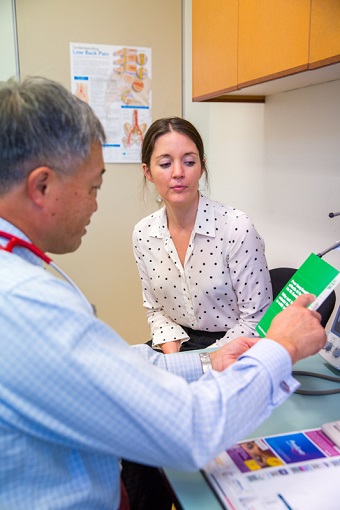
PFAS resources from the Department of Health
Since 30 November 2016, the Australian Government has been providing a free blood test for Per- and Poly-fluoroalkyl Substances (PFAS) for people who live or work, or who have lived or worked, in the Williamtown, NSW and Oakey, QLD, Investigation Areas and who have potentially been exposed to PFAS.
In order to support this program, the Department of Health has developed a number of fact sheets for consumers and GPs, which are now available at http://www.health.gov.au/PFAS.
CLICK HERE for the Program Information for GPs fact sheet.
CLICK HERE for the consumer fact sheet.

Expressions of interest – INTEGRATE Study by The George Institute
The George Institute for Global Health is seeking general practices that use either Best Practice or Medical Director Software to participate in its INTEGRATE Study.
Cardiovascular disease (CVD) is associated with large morbidity and premature mortality and the use of anti-hypertensive, statin and anti-platelet therapies have proven benefits. But there are still many patients with high risk of CVD who are not prescribed or compliant with the recommended treatments. The study aims to assess whether integrating three evidence-based tools will improve cardiovascular outcomes.
CLICK HERE for the EOI.
CLICK HERE for more information.
[contentblock id=1 img=gcb.png]
